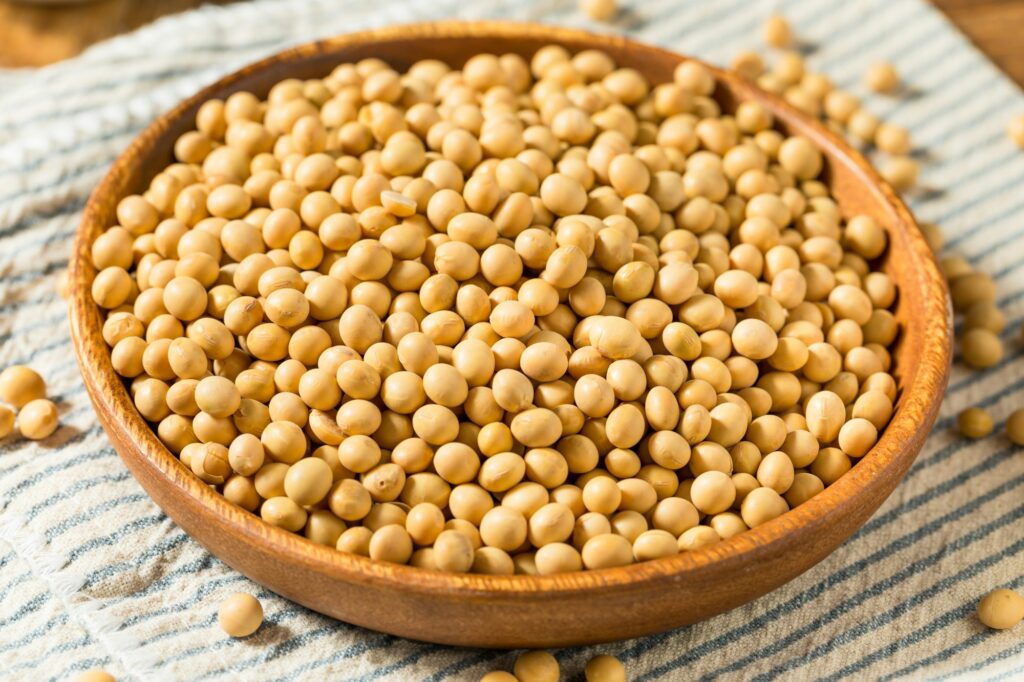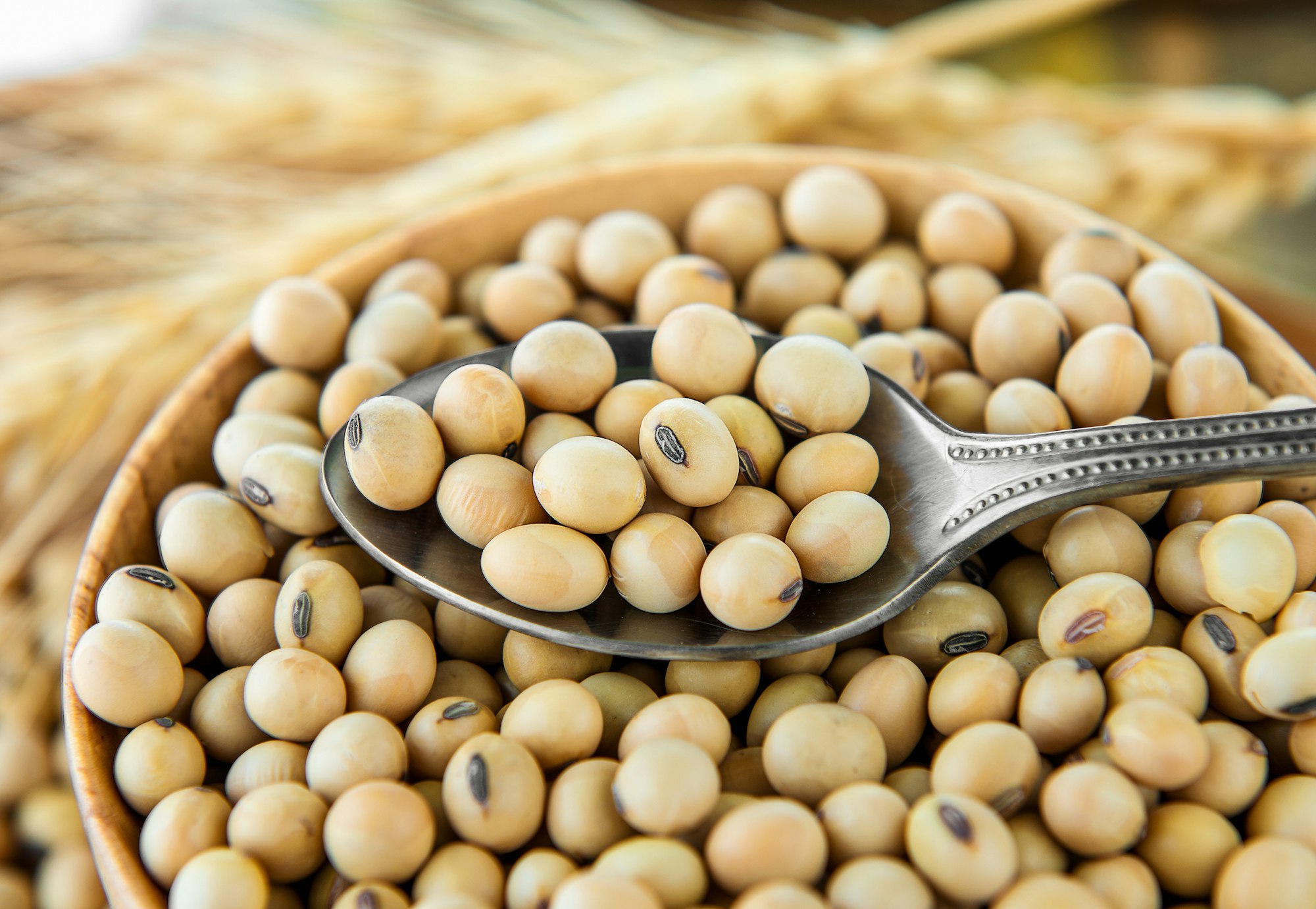The pictures in our articles might not always show exactly what the text is talking about. We use these images to make the article more interesting and eye-catching. They are there to add to the text, but not to replace it or show every detail.
Soy beans, scientifically known as Glycine max, are much more than just tiny legumes. These powerhouse plants have been captivating cultures and cuisines for thousands of years, offering a wealth of nutritional benefits and versatile applications. In this blog post, we'll explore 18 fascinating facts about soy beans that showcase why they're considered a true superfood.
From their humble origins in ancient China to their current status as a global agricultural staple, soy beans have quite a story to tell. Whether you're a health enthusiast, a curious foodie, or simply looking to expand your knowledge about this remarkable legume, you're in for a treat. Let's dive into the world of soy beans and uncover some surprising facts that might just change the way you view this nutritious powerhouse.
1. A Historical Gem
Soy beans have a rich history dating back thousands of years. Their cultivation can be traced to ancient China, where they were first domesticated and became an integral part of the local diet and culture. Over time, soy beans spread throughout Asia, becoming a cornerstone of many traditional cuisines.
2. Nutritional Powerhouse
Soy beans are packed with essential nutrients, making them a nutritional powerhouse. They're an excellent source of:
- Plant-based protein
- Dietary fiber
- Vitamins (particularly B vitamins)
- Minerals (including iron, calcium, and magnesium)
This nutrient density makes soy beans particularly valuable for vegetarians, vegans, and anyone looking to boost their overall nutrient intake.

3. Protein Perfection
One of the most notable facts about soy beans is their impressive protein content. They're one of the few plant-based foods that provide a complete protein, containing all nine essential amino acids that our bodies can't produce on their own. This makes soy beans an excellent protein source for those following plant-based diets.
4. Variety is the Spice of Life
Soy beans come in various colors and sizes, each with its unique flavor profile and culinary uses. Some common varieties include:
- Yellow soy beans (the most common type)
- Black soy beans
- Green soy beans (often consumed as edamame)
This diversity allows for a wide range of culinary applications and flavors.
5. Culinary Chameleon
The versatility of soy beans in the kitchen is truly remarkable. They can be transformed into numerous food products, including:
- Tofu
- Soy milk
- Tempeh
- Soy sauce
- Miso paste
This adaptability makes soy beans a favorite among chefs and home cooks alike, allowing for endless culinary creativity.
6. Heart-Healthy Hero
Research suggests that incorporating soy beans into your diet may have significant cardiovascular benefits. Regular consumption of soy products has been associated with:
- Lower cholesterol levels
- Reduced blood pressure
- Decreased risk of heart disease
These heart-healthy properties make soy beans a valuable addition to a balanced diet.
7. Phytoestrogen Powerhouse
Soy beans contain compounds called phytoestrogens, particularly isoflavones. These plant-based compounds can mimic the effects of estrogen in the body, potentially offering benefits for:
- Women's health
- Hormone balance
- Menopausal symptom relief
However, it's important to note that the effects of phytoestrogens are still being studied, and individual responses may vary.
8. Antioxidant Arsenal
Soy beans are rich in antioxidants, which help protect our cells from damage caused by harmful free radicals. Regular consumption of soy products may contribute to:
- Reduced oxidative stress
- Improved overall health
- Potential anti-aging effects
9. Bone-Boosting Benefits
The mineral content of soy beans, particularly calcium and magnesium, makes them beneficial for bone health. Including soy beans in your diet may help:
- Strengthen bones
- Reduce the risk of osteoporosis
- Support overall skeletal wellness
10. Sustainable Protein Source
In an era of increasing environmental awareness, soy beans stand out as a sustainable protein option. Compared to animal-based protein sources, soy beans:
- Require less water
- Use less land
- Produce fewer greenhouse gas emissions
This makes them an environmentally friendly choice for conscious consumers.
11. Weight Management Ally
Soy beans can be a valuable tool for those looking to manage their weight. Their high protein and fiber content can help:
- Promote feelings of fullness
- Reduce overall calorie intake
- Support healthy weight management
12. Gluten-Free Goodness
For those with gluten sensitivities or celiac disease, soy beans offer a safe and nutritious alternative. They're naturally gluten-free, making them a versatile ingredient in gluten-free cooking and baking.
13. Industrial Applications
Beyond their culinary uses, soy beans have numerous industrial applications. Soy-based products can be found in:
- Biodiesel fuel
- Cosmetics
- Plastics
- Lubricants
This versatility showcases the far-reaching impact of this humble legume.
14. Global Agricultural Giant
Soy beans have become one of the world's most important crops. They're grown on a massive scale in countries like:
- United States
- Brazil
- Argentina
- China
This global production highlights the economic significance of soy beans in international agriculture.
15. Traditional Medicine
In traditional Asian medicine, soy beans have been used for centuries to treat various ailments. While modern research is still exploring these potential benefits, soy beans have a long history of perceived medicinal properties.
16. Fermentation Favorites
Fermented soy products like tempeh, miso, and natto offer unique health benefits. The fermentation process can:
- Enhance nutrient absorption
- Support gut health
- Provide beneficial probiotics
17. Allergenic Awareness
While soy beans offer numerous benefits, it's important to note that they're one of the eight most common food allergens. Those with soy allergies should be cautious and consult with a healthcare professional about their dietary choices.
18. Future Food Potential
As the world seeks sustainable and nutritious food sources, soy beans are likely to play an increasingly important role. Ongoing research and development are exploring new ways to harness the potential of this versatile legume for future food security.
In conclusion, soy beans are truly a remarkable food with a wide array of benefits and applications. From their rich nutritional profile to their sustainability and versatility in the kitchen, soy beans have earned their place as a global superfood. Whether you're looking to boost your protein intake, explore new culinary horizons, or make more environmentally conscious food choices, soy beans offer something for everyone.
As we continue to uncover more about the potential of soy beans, one thing is clear: this small but mighty legume will undoubtedly continue to play a significant role in our diets and industries for years to come. So why not give soy beans a try? Your taste buds, your health, and the planet might just thank you for it!






